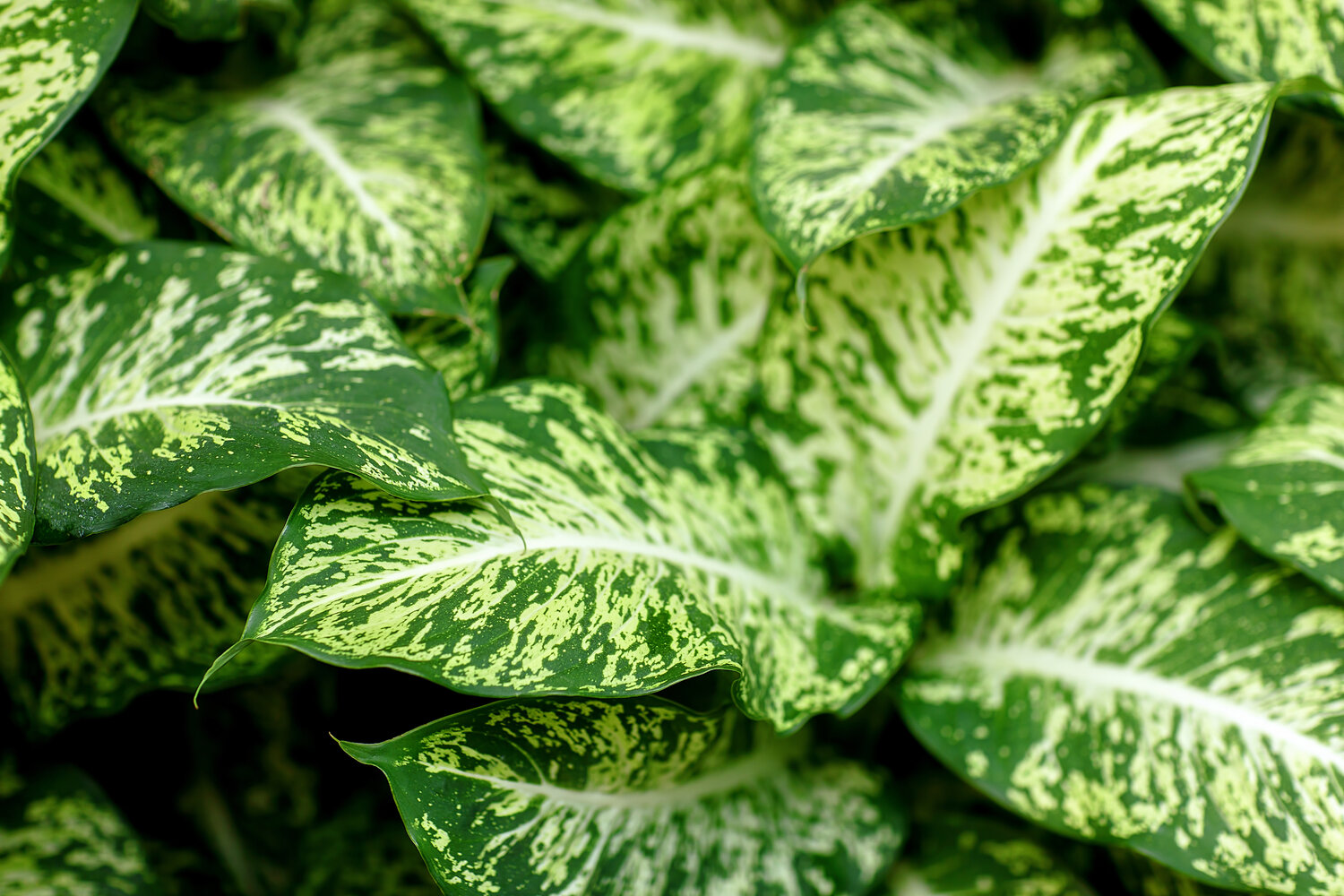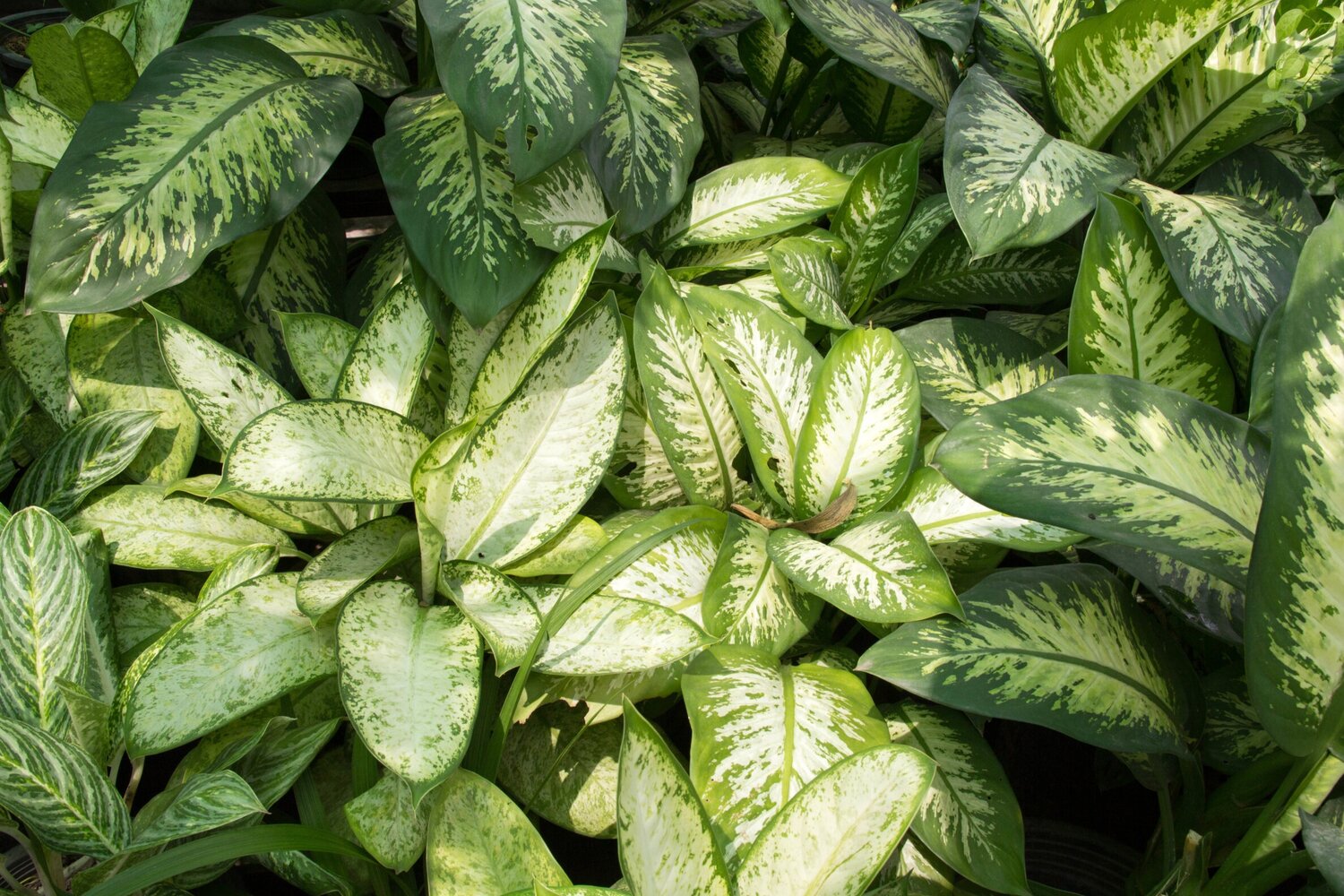Origin
Dieffenbachia originate from the West Indies and the tropics. It's a hardy plant which is well-suited to beginners as it's relatively easy to care for.
It is also commonly, although archaically, known as 'Dumb Cane'. This name comes from the fact that this plant is highly toxic (so make sure to keep it away from pets and children), and if ingested it can cause a strong reaction in the mouth and throat, leading to a temporary loss of the ability to talk. Speech difficulties have unfairly been referred to throughout history as being 'dumb', hence the name.
Very upsettingly, it has also been reported that forced consumption of this plant was used as a way to punish slaves. For these reasons, we prefer to use the name Dieffenbachia instead of Dumb Cane.
However, despite its sad history, Dieffenbachia makes a wonderful and attractive-looking houseplant which can grow to impressive sizes - up to around 6 feet tall (~182cm)!

Care
Dieffenbachia can adjust well to a number of different lighting conditions, making it a versatile and adaptable plant, especially if your home is limited in terms of available plant-friendly spaces.
Its preferred light is part sun, part shade, but it can also survive well in more shaded conditions such as a space farther from the window or even in a bathroom. Bathrooms often have less available light than other areas in your home, and Dieffenbachia's love high humidity so will enjoy all the moisture in the air.
Reflective of its tropical home, Dieffenbachia also prefers warm temperatures. We recommend keeping yours inside all year round, preferably at a temperature of around 64 - 77 °F or 18 - 25 °C, unless you live in a particularly warm area.

Other
This plant belongs to the same family as the Peace Lily (Araceae). Many of the plants in this family contain toxic calcium oxalate crystals.
Calcium oxalate can be harmful, so handle it with care (use gloves) and make sure that it's out of reach of kids and pets.
Also like the Peace Lily, Dieffenbachia is a great air-purifying plant, helping to cleanse the air around you of toxins.
Unfortunately, they can be somewhat prone to pests, particularly aphids, so keep an eye out for uninvited visitors on your plant!